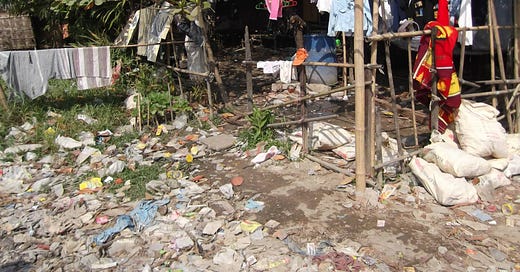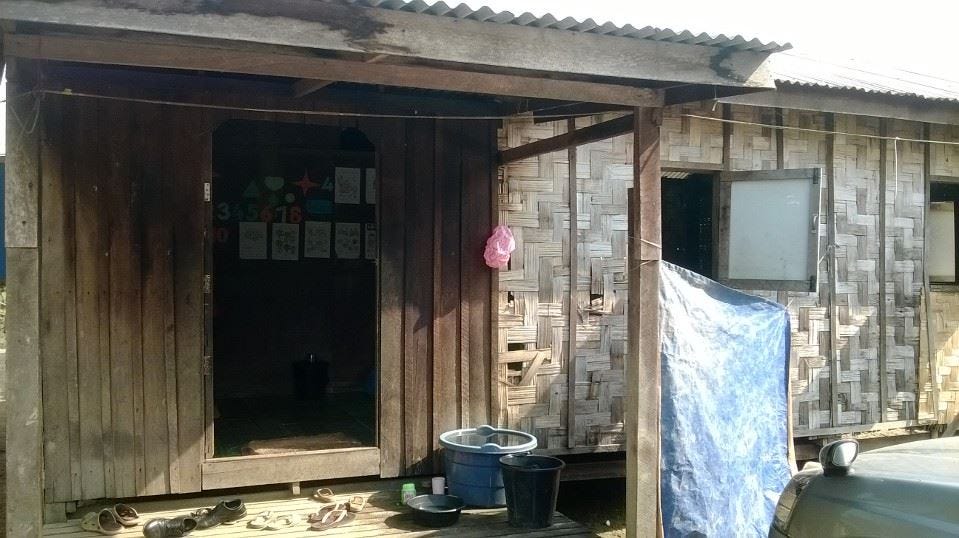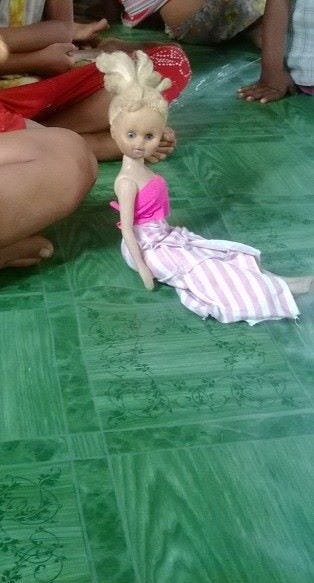I don’t usually posts two posts a day, so sorry for bombarding you, but I just came across some old photos from over a decade ago, taken in one of the poorest places on earth. It brought back a flood of memories—some raw, some humbling, and some that still challenge me today, so I thought I’d share.
I am stranger to ‘poverty’. I grew up in council housing, on free school meals, with a father who was on benefits for most of my childhood (of course he also worked on building sites while claiming those benefits, as most of the men did). Our home was a prefabricated house, one of the "homes for heroes" built after WWII, meant to last ten years. Eighty years later, they’re still standing, and my family still lives in one. Everyone I knew was in the same boat, we didn’t realise we were ‘poor’ because poverty is only truly visible when you have something to compare it to.
By the time I landed in Southeast Asia twelve years ago, I thought I understood hardship. Military life had already exposed me to the rougher edges of the world, but even that didn’t prepare me for what I encountered. This was a country already ranked among the three poorest in Asia, but the year before my visit, a devastating cyclone had made the poor even poorer.
I don’t want to dwell on the sheer desolation of what I saw. The grinding poverty, the makeshift shelters, the desperation etched into people’s faces. That’s not the story. The story is what shone through despite it all—kindness, resilience, and an unshakable generosity that still leaves me speechless and not a little teary eyed.
It’s easy to visit a place like that and look down on the people—their customs, their way of life, even their eating habits. They eat dogs, frogs, and, perhaps most unsettling to Western eyes, little bird embryos. From the comfort of the West, we balk at such things, clutching our moral superiority like a security blanket. Rich, comfortable, soft and sentimental Westerners shudder at the thought of a village killing an elephant to sell for Chinese medicine. And yet, the money from that one elephant would provide for an entire village for over a year.
These are choices we never have to make. And thank God for that.
But if there’s one thing I learned from those people, it’s that in the worst conditions imaginable, human dignity, kindness, and generosity still shine through.
One moment in particular stays with me.
I visited a settlement where people lived on debris washed up by the flooded Mekong during the cyclone—scraps of wood, plastic, anything that could form a semblance of shelter. In this place, there was a tiny shack that functioned as a school, a clinic, a church, and a training centre, all within the same 12-by-6 space. The children there floored me. Their joy, their spirit, their strength in the face of absolute destitution.
Something about it all just overwhelmed me. I’ve seen a lot in my life. I’ve been through a lot. But at that moment, I broke. The weight of it all—the injustice, the suffering, the sheer contrast between my life and theirs—hit me like a brick. And then, as I sat there, barely holding myself together, a little girl—probably no older than five or six—tried to comfort me.
She nudged something towards me. A doll.
It was her most prized possession. A little Barbie that had clearly been through hell—filthy, broken, salvaged from the same floodwaters that had taken everything from her. And yet, seeing me in distress, she thought this might cheer me up.
She had nothing. And she wanted to give me something.
I don’t think I’ve ever cried harder in my life.
One of my main tasks there was helping to provide fresh water through well-digging projects. And yet, here I was, in a place devastated by flood, drowning in my own emotions because of the generosity of a child who had nothing but was willing to give everything.
That moment still shakes me. Still challenges me, if there’s one thing I learned from those people, it’s that in the worst conditions imaginable, human dignity, kindness, and generosity still shine through.
And the first lesson we in the West could learn from them? Gratitude!
Thanks for taking th time to read, this page is free and that is how I tend to keep it, however if you would like to contribute and be a bigger part in what I do here, then please consider a paid subscription.








The poorest retain their common humanity while the richer forget it. I’m struck by studies that test how often drivers stop at crosswalks when they see a pedestrian. Typically, the more expensive the car the less they stop.
I volunteered for many years overseas and what I discovered was that the very people I was supposed to be helping often ended up comforting me - their gratitude was based on the fact that I cared enough to leave my country to be with them. I definitely learnt more from them than I was ever able to impart; this lesson in gratitude + their joy and resilience has remained with me all my life...